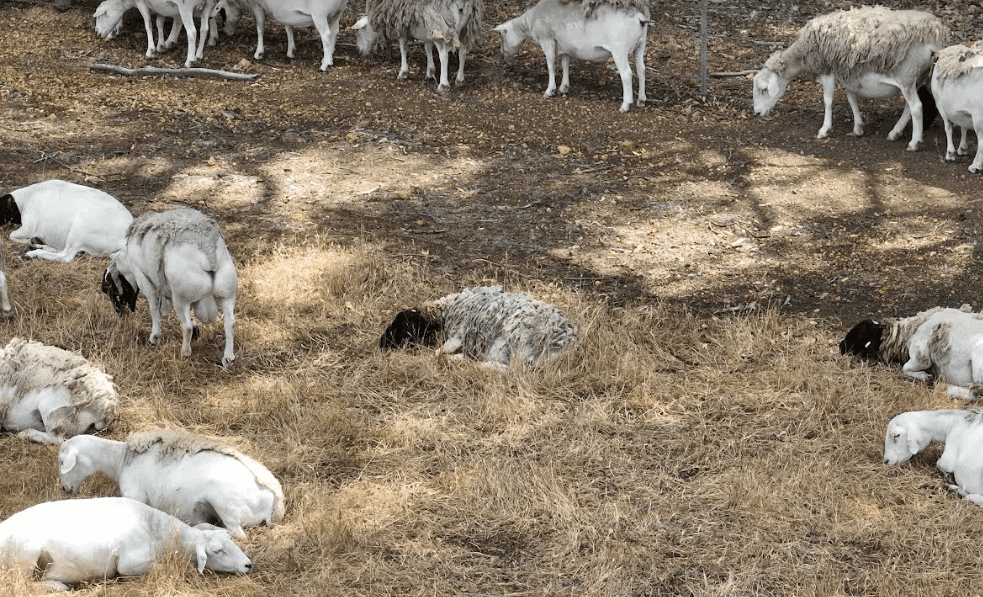
A drone view of sheep enjoying some shade. Image – DPIRD
DRONES can provide high quality, accurate information on sheep and cattle welfare, without causing adverse animal welfare effects, a Western Australian study has found.
The Department of Primary Industries and Regional Development study found remote piloted aircraft or drones were an effective tool to monitor the health and welfare of livestock from a distance.
DPIRD compliance veterinary officer Kristine Rayner said drones in herd animal health surveillance was an emerging tool and they had been used for applications such as mustering stock, behavioural observation, counting stock and for wildlife surveillance.
“We undertook a feasibility study into the use of drones, looking at their suitability for assessing the health and welfare of animals, while also examining their behavioural response,” she said.
“Two drone models, a micro category and a very small category, were selected for comparison with examinations using a vehicle, with researchers looking at how the different methods affected the disturbance and behavioural reactions of the livestock.
“The preferred method was the use of the very small drone which had the best sensitivity for detection of conditions potentially associated with adverse health or welfare and the best optics at a distance that did not disturb the animals,” Dr Rayner said.
“The optics of the very small drone enabled distance examination without disturbance in both cattle and sheep; however, cattle were more sensitive to the presence of the drones than sheep.”
Dr Rayner said high-specification drones flown correctly by an experienced pilot with a dedicated observer provided high quality, accurate information when assessing the welfare of livestock, without causing adverse effects on animal welfare.
“We learnt that drones could be very effective and efficient, increase biosecurity, reduce work health and safety risks, and reduce stress to the animals,” she said.
“Drones additionally have the capacity to record footage and still images which can be reviewed for further assessment at a later date.”
The feasibility report has been submitted to the Australian Veterinary Journal and it has now been published online: Distance examination of livestock with drones ‐ an effective method for assessing health and welfare (wiley.com)
Source – DPIRD.



HAVE YOUR SAY